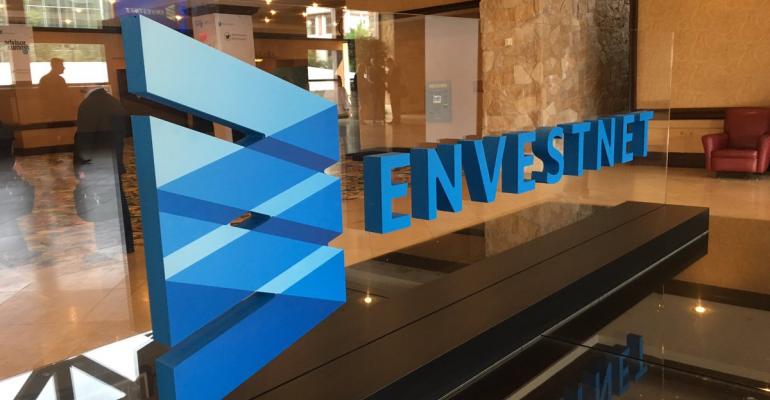Envestnet has acquired wealthtech firm Harvest Savings & Wealth Technologies, which builds automated goals-based microsavings tools and digital account opening technology for banks, credit unions, trust companies and other financial institutions, according to an announcement. Terms of the deal were not disclosed.
With the deal, Envestnet will strengthen its "financial wellness" ecosystem for clients, according to the firm, especially those who have yet to save significant assets.
In the microsavings feature, users can assign a financial goal a name, and an image, and dedicate a savings stream toward it. The most popular goal for current users is to automate an emergency savings bucket, according to the firm. The digital account opening lets clients open savings, wealth and trust systems in hours.
The data is delivered to the bank or the firm and can flag when it may be time to move a client from a savings account to broader investment options, the firm said.
While the micro-savings feature may not find immediate resonance with financial advisors who use Envestnet's platform, both the savings and account opening features bolster the firm’s vision of “financial wellness,” according to Stuart DePina, president of Envestnet.
"This acquisition optimizes our API-based financial wellness ecosystem, and also helps strengthen our foothold to enable embedded finance, which we see as a key driver of the future of financial services,” he said in a statement.
Harvest Savings & Wealth Technologies, or Harvest as it’s referred to by its CEO, Drew Sievers, was formerly called Trizic, before its rebranding in 2019.
As Trizic, the white-label tech provider rolled out John Hancock’s automated investing service and has worked with BOK Financial, First Citizens Bank, Apex Clearing Corporation and Central Trust Company. It added $23 million in new equity and debt financing less than two years ago.
Harvest’s rebranding in 2019 was an outward signal of a new focus on “helping financial institutions deliver tightly integrated savings and wealth solutions to their customers at any part of their financial journey,” according to a blog post by Sievers. “People don’t construct their lives to match the operating structure of their bank.”
It’s a message that resonates with Envestnet.
Harvest’s tech will allow Envestnet | MoneyGuide’s deconstructed financial planning “Blocks” to perhaps be more ingrained into the clients' financial management, as well as giving advisors and other Envestnet clients a better chance at engaging new savers and the next generation of current clients, said Alois Pirker, research director for Aite Group's wealth management division.
But perhaps more importantly, it gives Envestnet an entirely new tool to approach end-clients who are new to savings and investments.
“Often we think about [financial] wellness in the context of retirement accounts, and any sort of planning on top of retirement accounts,” said Pirker. “But that is, of course, only for consumers who have retirement accounts. As we know, the U.S. has many consumers that don't have retirement accounts.”
For independent advisors concerned that Envestnet may be providing more firepower to the wealth management divisions of banks, there’s little reason to worry, added William Trout, director of wealth management at Javelin Strategy & Research. In fact, Harvest’s technology should give advisors a better edge in competing against pure software “super apps” that could eliminate the human element all together.
“Banks and advisors face a common threat in the form of one-stop-shop apps for savings, credit and investments,” said Trout. “Small banks and credit unions lacking a robust investments proposition have been particularly vulnerable to deposit run-off, and Harvest helps these banks by digitizing the client experience and integrating banking and investments services more closely. Advisors could also benefit from this type of integration.”
“I see the contest as less between banks and advisors and more between advisors—across all channels, including banks—and the so-called super apps,” he concluded.





